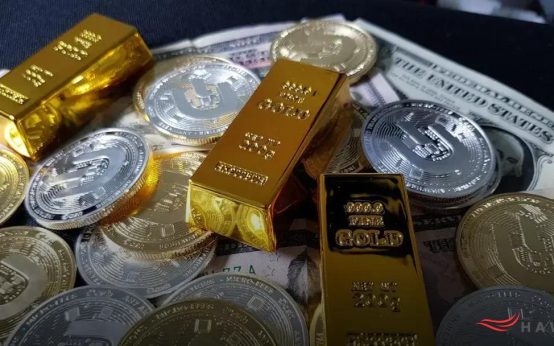In the world of finance, insider trading plays a significant role, influencing stock market dynamics and investor trust. It’s crucial to understand its impact and the fine line between legal and illegal practices. This article explores various aspects, from regulations to ethical debates, helping you grasp the complex landscape of insider trading.
Understanding Insider Trading
Understanding insider trading involves grasping how it can significantly influence stock market dynamics. Insider trading refers to the buying or selling of a publicly-traded company’s stock by someone who has non-public, material information about that stock. This can affect stock prices and the decisions of regular investors. By understanding such dynamics, investors gain insights into price movements.
Information and Impact
Insiders, such as executives or board members, often have access to critical data that the general public lacks, such as unpublished financial reports or upcoming mergers. When they trade based on this knowledge, it can create unfair advantages in the marketplace, potentially leading to volatility.
Implications for stock markets are profound. The perception of unfair trading practices can erode trust and deter investment. It also disrupts the level playing field that financial markets are designed to maintain. Thus, comprehending the nuances of insider trading helps in appreciating its role in shaping stock market dynamics.
Proper regulation and strict enforcement of insider trading laws are essential to maintaining the integrity of the financial markets. By understanding these concepts, investors and traders can better navigate the complexities of the stock market.
Legal vs Illegal Insider Trading

In the realm of the stock market, insider trading can drastically impact market dynamics. It is crucial to differentiate between legal and illegal insider trading to ensure market fairness and compliance.
Legal Insider Trading
Legal insider trading occurs when corporate insiders—such as executives, directors, and employees—buy or sell stock in their own companies. This activity is permissible as long as it is done in accordance with securities laws and regulations. Insiders must report their trades to regulatory bodies, ensuring transparency and fairness. Legal insider trading can provide the market with valuable insights, as these insiders often have a deep understanding of their company’s potential.
Illegal Insider Trading
Illegal insider trading, on the other hand, involves trading based on material, non-public information. When individuals exploit confidential information for financial gain, it undermines market integrity and erodes investor trust. This prohibited form of insider trading is subject to severe penalties, including heavy fines and imprisonment. Regulatory bodies worldwide actively monitor and prosecute illegal activities to maintain a level playing field.
The distinction between legal and illegal insider trading is critical for maintaining the integrity of the financial markets and protecting investors from unfair advantages driven by asymmetrical information.
Case Studies of Insider Trading Impact
Analyzing real-world case studies sheds light on how insider trading affects stock market behavior. These examples illustrate the profound impact insider activities can have on market volatility and investor confidence. One notable case involved a major technology corporation where executives used privileged information to buy shares before public announcements. This resulted in significant stock price shifts, causing losses for uninformed investors.
Another instance pertains to a pharmaceutical company, where insider knowledge about an upcoming merger was leveraged to inform strategic stock purchases. Such actions not only impacted the company’s stock value but also the wider sector’s market dynamics. These studies demonstrate the sometimes-undetectable nature of insider trading and its ability to disrupt normal market operations.
In examining these case studies, we see the ripple effects insider trading can have across the market, highlighting the necessity for rigorous enforcement of regulations. The cases underscore the challenge regulators face in identifying and curbing such activities, emphasizing the need for continuous vigilance and adaptation of policies to safeguard market integrity.
Regulations Governing Insider Trading

Insider trading regulations are essential in maintaining a fair and transparent stock market. These regulations govern how information that is not available to the public can be used for trading securities. Various regulatory bodies, such as the U.S. Securities and Exchange Commission (SEC), have been enforcing rules to curb illegal activities associated with insider trading.
A significant piece of legislation is the Insider Trading Sanctions Act, which imposes harsh penalties on those who trade securities based on non-public information. Similarly, the Insider Trading and Securities Fraud Enforcement Act of 1988 strengthened the SEC’s ability to penalize offenders and increased penalties for violations.
Moreover, companies are required to establish insider trading policies that prevent executives and employees from engaging in unethical trading practices. These policies include blackout periods, where individuals within the company cannot trade stock prior to a major announcement that might affect stock prices.
The global perspective also shows variations in insider trading laws. While some countries have stringent regulations similar to those of the United States, others are more lenient, leading to differing impacts on market dynamics worldwide. It’s crucial for investors and professionals within the financial sector to be aware of these regulations and adhere strictly to avoid severe repercussions.
The Ethical Debate on Insider Trading
The ethical debates surrounding insider trading are intense and complex. At the heart of this discussion lies a question of fairness. Is it right or wrong for individuals with privileged information to use it for personal gain? Some argue that insider trading undermines trust in financial markets, as it represents an unfair advantage.
On the other hand, certain proponents believe that insider trading can enhance market efficiency. By acting on insider information, they suggest markets could adjust more rapidly to new data, potentially stabilizing stock prices in the short term. However, this position raises concerns about accountability and transparency.
The ethical perspective also involves examining the potential victims of insider trading. Many would argue that ordinary investors, without access to such information, are at a significant disadvantage, leading to unequal playing fields. This power imbalance contributes to broader societal issues of inequality.
Another dimension of the ethical debate focuses on the responsibility of businesses. Companies have a duty to protect sensitive information and provide equal access to data, ensuring no participant has undue advantage. Ethical business practices demand rigorous enforcement of policies to prevent insider trading.
In conclusion, those involved in these discussions must weigh the implications of insider trading on market fairness and efficiency, considering both broader societal impacts and immediate financial outcomes without reaching a definitive resolution to the debate.





